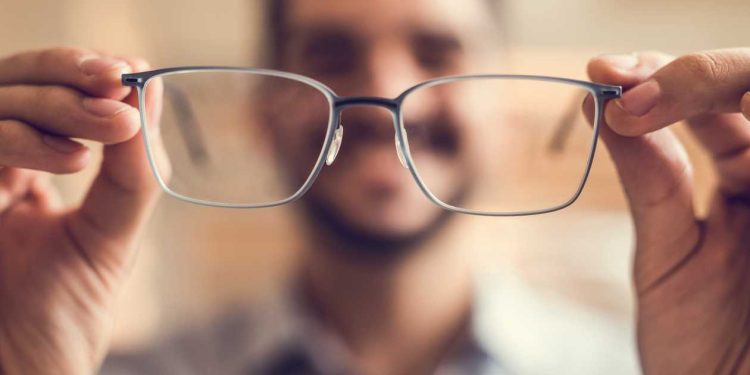As we age, our vision can start to change, and for many people, this means the need for reading glasses. While the thought of needing reading glasses may seem daunting, they can greatly improve your daily life if you’re experiencing the following signs.
In this article, we’ll explore five common signs that indicate you need reading glasses and what to do next to ensure your vision remains sharp and clear. Plus, we’ll discuss how replacement lenses can be a solution to consider.
Table of Contents
1. Difficulty Reading Small Print
One of the most obvious signs that you need reading glasses is when you find it challenging to read small print. If you notice yourself holding books, newspapers, or menus at arm’s length to make the text appear clearer, it’s time to consider getting reading glasses. This difficulty with small print is a clear indicator that your close-up vision is deteriorating.
What to do Next: Schedule an appointment with an optometrist for an eye examination to determine the right prescription for your reading glasses. Once you have your prescription, you can start looking for the perfect pair of reading glasses or consider using replacement lenses if you already have a pair that you love.
2. Eye Strain and Frequent Headaches
Experiencing eye strain or frequent headaches, especially after reading or working on a computer for an extended period, can be a sign that your eyes are working harder than they should be. When your eyes are struggling to focus on close-up objects, it can lead to discomfort and headaches.
What to do Next: If you’re experiencing eye strain and headaches, it’s important to consult an eye care professional. They can determine if reading glasses are the right solution for you and, if so, provide you with the appropriate prescription. Replacement lenses may also be a cost-effective option for those who already have reading glasses.
3. Blurred Text and Double Vision
Blurred text or seeing double when trying to read is a sure sign that your near vision is deteriorating. If words on a page appear fuzzy or you see multiple images of the same text, it’s time to address this issue.
What to do Next: Visit an optometrist for a comprehensive eye examination. They will assess your vision and recommend the appropriate eyewear, such as reading glasses. If you already have reading glasses and are experiencing this issue, replacement lenses might be a solution to consider for a quick and cost-effective fix.
4. Needing More Light to Read
If you constantly find yourself increasing the amount of light in the room to read comfortably, it’s a sign that your near vision may be declining. This is a common issue as we age, and it’s a clear indication that reading glasses could be beneficial.
What to do Next: Make an appointment with an eye specialist to evaluate your vision. They will prescribe the right strength for your reading glasses. Replacement lenses can also be an option to consider if you already have reading glasses frames that you like.
5. Squinting to See Clearly
Squinting to see small print is a natural reaction when your eyes have trouble focusing up close. While squinting may temporarily improve your vision, it’s not a long-term solution and can lead to eye strain and discomfort.
What to do Next: Avoid straining your eyes by visiting an optometrist for an eye exam. They will assess your vision and provide you with the necessary prescription for reading glasses. If you already have reading glasses, replacement lenses can extend the life of your eyewear.
What Are Replacement Lenses?
Now that we’ve discussed the signs that indicate the need for reading glasses, it’s important to understand what replacement lenses are and how they can be a cost-effective and convenient solution.
Replacement lenses are individual lenses that can be inserted into your existing eyeglass frames. They are designed to replace your old or damaged lenses while keeping your frames intact. This option is not only budget-friendly but also environmentally responsible since it reduces the need to discard entire eyeglasses when the lenses are the only issue.
Final Thoughts
Experiencing any of these five signs is a clear indication that you may need reading glasses to improve your near vision. If you’re unsure, it’s always best to consult with an eye care professional for a comprehensive eye examination.
Whether you’re getting your first pair of reading glasses or considering replacement lenses, taking the necessary steps to address your changing vision will make your daily activities more comfortable and enjoyable.
Remember, regular eye check-ups and proper eyewear can significantly enhance your quality of life, ensuring that you can continue to enjoy books, screens, and all the fine print life has to offer.


 Home
Home









